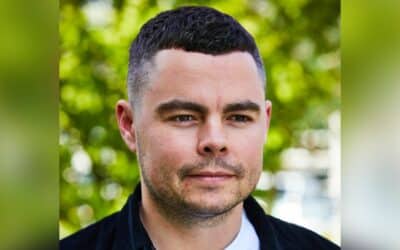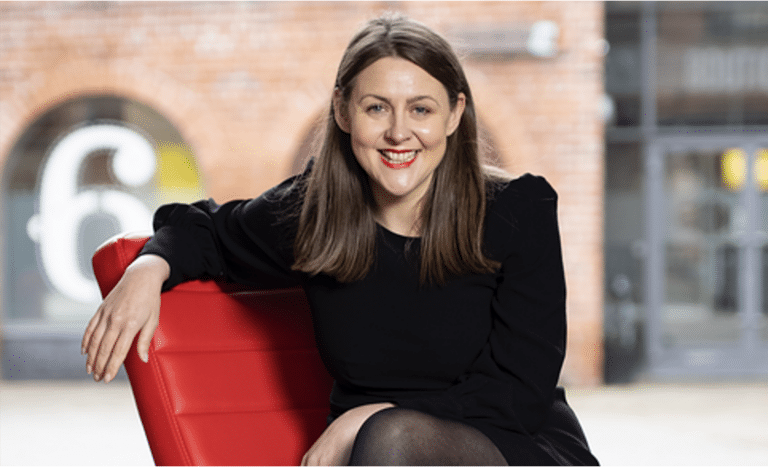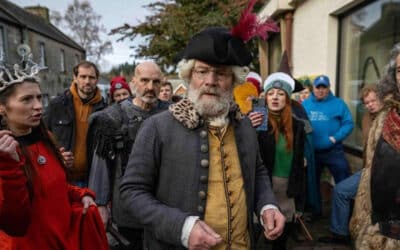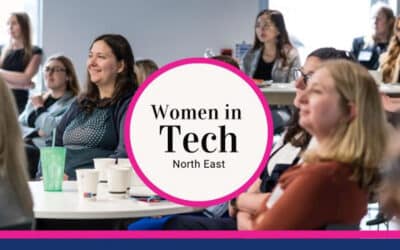Amy Cockram joined digital tech consultancy AND Digital in 2021, initially as head of client services until becoming Club executive in October 2022.
Before joining AND Digital, Amy worked at UNRVLD as group account director.
She’s now based at one of AND Digital’s ‘Clubs’ in Leeds, one of many dotted across the UK and Netherlands including in Leeds, Manchester, Birmingham, Edinburgh, London, and more. A group of Clubs in a given region, such as where Amy is based in Leeds, forms a hub as part of the company’s unique decentralised model.
She shared her career journey, tips and advice…
How did you first get into your industry?
I was lucky to start my career journey with a big organisation, Asda. Being young and fresh out of University, I was quickly exposed to a big and diverse workplace and could really start to see how things work together early on – especially how and when organisations lean on external partners to guide them through the specific and complex challenges that they face.
Working as part of the team responsible for setting up Asda Direct, I learned so much about the true scale and complexity involved in projects like this, and just how much needs to happen behind the scenes to make a simple solution for the end user come to life. This is also where I learned about consultancy and agency life, and wanted to know more. This experience gave me the appetite to explore a role within an agency, driven by an interest in how consultancies and organisations can work effectively together.
I was hungry to see what it was like from the other side – solving the challenges I had once leant on agencies for support on. It was while working on the agency side that I fell in love with tech and the ability to work with a real mix of brands and help people and organisations on such a broad scale. AND Digital provided the perfect opportunity to do this in a way that was true to my passion and values for partnership and collaboration and keeping people at the centre of everything we do.
What do you love about your job?
I love the variety of the different projects you become a part of. Every sector and market has a need for tech, and what’s really special for me is understanding what people need and what makes it work. People are who we’re here to serve and as a people person, it resonates strongly with me. It feels good when you can make life better and easier for people on a daily basis. Another big driver of the satisfaction I feel from my role is the people I work with.
Seeing people really come to life and bring passion to a project is such a rewarding part of the job. I’m humbled by the diverse knowledge we have across the team and the technical and strategic guidance that is brought to life across a variety of complex projects. When I think of who I work alongside, and the problems they tackle every day, it really inspires and motivates me to want to help them do more of it.
Who – or what – has inspired you in your career?
Again, it comes back to the people. I’ve been lucky enough to be surrounded by people who have had a very natural ability to inspire and are passionate about what they do. I have often found myself following people with these qualities, and those who truly drive change throughout my career over and above the roles themselves.
What are the biggest challenges about your job?
Balancing the different needs and points of view people have when making decisions – which is something I need to do on a daily basis. For example, sometimes the client’s needs and wants are different from our observations so it’s vital that we communicate effectively, share information and context with each other to help ensure that everyone is clear on the parameters we’re working within and can make good decisions.
When faced with these challenges, I find myself also anchoring back to the question, ‘what is the right thing to do?’ My advice to anyone else facing similar challenges would be to bring everyone along on that journey with you. People care and want to be involved. How do you show you’re listening and playing back what you’re hearing and helping people to see where they can really add value- that way you make sure you move forward in a collaborative way as a team and everyone has a role to play.
What skills have been the most crucial to you succeeding in your career so far?
Having good instinct, and trusting it. Knowing when to call something out that didn’t feel right, or to stand up for something that does has been crucial to my success so far. Also understanding how to articulate this judgement is something I have crafted throughout my career- doing this in a human way, and staying true to yourself is important. Commercial context is another skill and balance I have to keep front of mind in everything I do.
I believe that doing the right thing is the first, most important step. If you spend time to build relationships and trust, and show integrity in the way you work- shaping the solution, the team you need and ultimately the budget becomes a natural part of that process. There will always be times where we have a challenge with budgets, but knowing where you can flex, where you can add value and what will really make a difference helps this too. If you’ve built the right relationships you can have honest conversations and this becomes easier, like a partnership you are both investing in.
What was your first salary and what could someone getting into the industry expect to earn nowadays?
My first salary was £13,000, that was in 2003 during my industry placement at university. Wow.. I feel old! I then joined a graduate scheme, with a starting salary of £26,000 which then went up each year until I landed in what was equivalent to a management position. In terms of what you could expect to earn today, I think this figure depends on so many different variables at play.
What I will say is, the great thing about the tech sector is that it provides opportunities at every level – whether you’re kickstarting your career, or entering the industry in a career move – as I did. More opportunities to work remotely, in different locations, and the potential need for your specific skillset and experience mean that it feels like more of an open negotiation for graduates today – employers are often willing to be flexible for the right candidate. My advice would be to not be afraid to ask if any of these factors could influence the starting salary you are being offered.
What education or training would be most useful for someone looking to follow your career path?
There are so many accessible opportunities to gain experience now, from government-funded schemes to online courses, so I would recommend getting stuck to as many as you can if you’re able to. Work experience is the best opportunity to see first hand what it’s like in the work environment – look out for schemes that include time within real life environments.
There are also apprenticeships with such a broad range of training and experience that are also paid, which is such an important part in making this achievable. But really I would say, just be curious. Reach out to people on LinkedIn, send out introductory messages and emails and start to immerse yourself into the community you’re looking to become part of.
What advice would you have for someone looking to follow your path?
Stay true to yourself. I think that it’s really important to be authentic right from the outset. You know the values that are important to you, so let this guide you. Be curious about how you can grow as a person, observe people you admire and ask for feedback – all of this will help shape your career path, but you will always be you!











